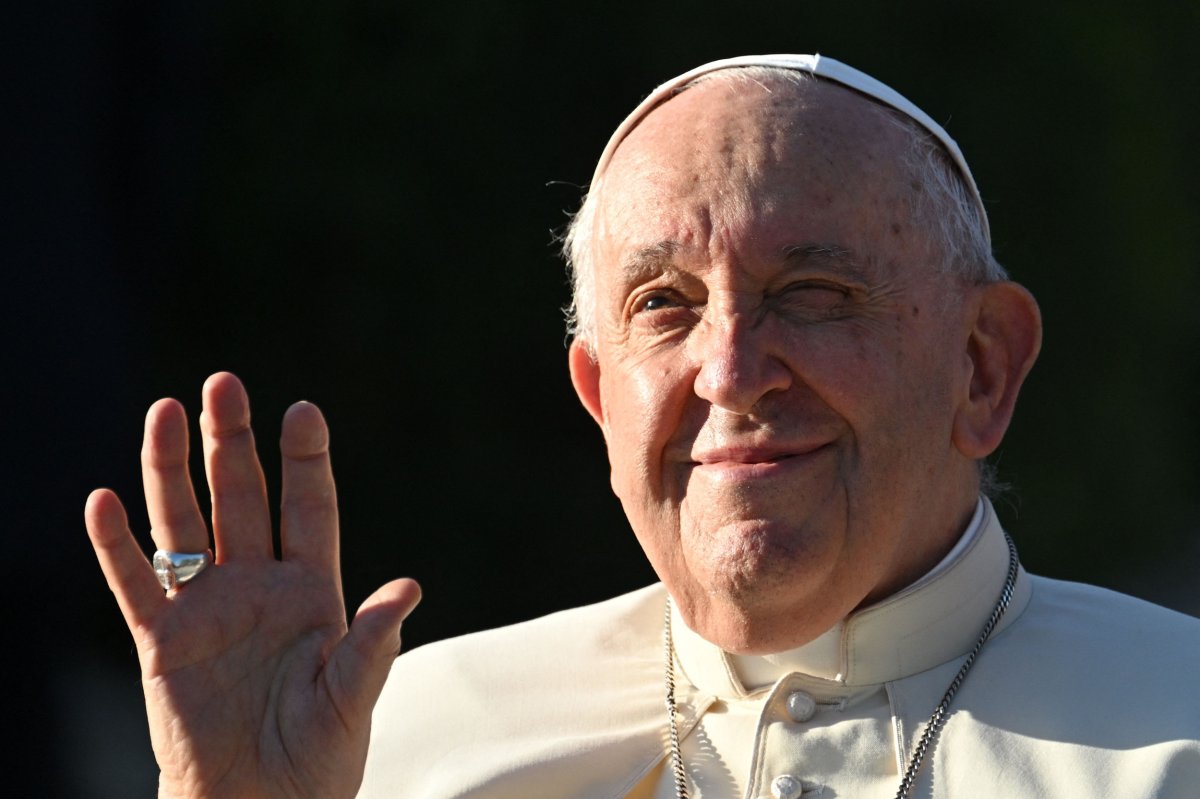American Catholic conservatives hoping that the next pontiff is more to their liking ideologically than 86-year-old Pope Francis are likely to be disappointed, according to a number of experts in theology, amid ongoing tension between Rome and some of its U.S. affiliates.
On August 5, Francis launched a blistering attack on the backwardness and reactionary attitude of some in the U.S. Catholic Church during a meeting in Portugal. It was reported by the Jesuit journal La Civilta Cattolica, which is vetted by the Vatican.
Since assuming the papacy in 2013, Francis has struck a noticeably more progressive tone than his two immediate predecessors, Popes Benedict XVI and John Paul II. He has spoken out passionately about the environment, urging Catholics to join the struggle against climate change. Francis has linked global hunger to "the cold logic of the [free] market."
On social issues, Francis has continued to take socially conservative positions, such as calling homosexuality a sin, but he spoke out against its criminalization and urged greater understanding in an interview with the Associated Press in January.

Such remarks have caused a backlash from elements within the American church, such as Bishop Joseph Strickland of Tyler, Texas. In May, he accused the pope of "undermining the Deposit of Faith" and previously endorsed a video calling him a "diabolically disordered clown." After Archbishop Carlo Maria Viganò published a letter in 2018 accused Francis of covering for the gay lobby, and urging him to resign, about two-dozen American bishops vouched for his integrity while choosing not to defend the current pontiff.
The pope hit back in Lisbon in August, decrying the very strong, organized, reactionary attitude in the U.S. church, which he condemned as backward.
Francis added: "In this way, the true tradition is lost, and you turn to ideologies for support. In other words, ideologies replace faith.
"I want to remind these people that backwardness is useless, and they must understand that there's a correct evolution in the understanding of questions of faith and morals," Francis said.
Writing for The Washington Post, David Gibson, director of the Center on Religion and Culture at Fordham University, New York, argued that American conservatives cannot simply wait Francis out and expect "that the next pope will represent a return to the right in Rome." He added that Francis has now "named more than 70 percent of the College of Cardinals who will elect his successor."
Gibson said Catholicism's center of gravity is in the Southern Hemisphere now, with the U.S. church making up just 5 percent of its members.
Gibson told Newsweek that nothing is guaranteed in terms of Francis's successor, but said: "I think it unlikely that you will get the pope-as-policeman that some on the American right seem to want. The church is becoming more global, and less centered on Rome as 'running' everything. I think that will continue, even if there is a consolidation of Francis' reforms."
In an interview with Newsweek, Professor Michele Dillon, a sociologist at the University of New Hampshire who specializes in the Catholic faith, agreed Francis has "appointed a large number of Cardinals who share his overall pastoral sensibility and openness to ensuring a more-inclusive Catholic Church."
Dillon said it is statistically probable that the next pope will be someone with this sensibility. However, she added: "Each Conclave has its own emergent dynamics as the discussions and voting rounds proceed, and so various nuanced shifts can emerge that can favor what might initially be considered a somewhat unlikely candidate/successor pope (either doctrinally, geographically, or personality-wise)."
Dillon added that a pope's prior record isn't necessarily indicative of how they will behave as head of the Catholic church.
She said: "Benedict is a good example of this. As Prefect of the Vatican's Congregation for the Doctrine of the Faith for 25 years before becoming pope, he was widely known for his strong emphasis on reasserting church teachings on sexual issues (contraception, marriage, same-sex relations). Yet, as pope, his public statements and encyclicals mostly focused on spiritual virtues (e.g. charity), social justice and the ethical challenges posed by economic inequality."
Professor Cristina Traina, an expert in Catholic ethics at Fordham University, agreed "the next pope is likely to be someone who leans in Francis's direction."
However, she told Newsweek that it is unclear which elements of Francis's leadership they will seek to extend, commenting: "The question is, which element of his legacy will the College emphasize in their choice?"
Traina said: "'Progressive' and 'conservative' are in some ways unhelpful terms, for Francis and many of his appointees are very pastoral and very justice-oriented but don't embrace other positions that Americans would call 'progressive' values: ordination of women and out GBT men, LGBTQ+ issues, etc. So it's perfectly possible that they will elect someone who genuinely continues Francis's legacy but isn't [what Americans call] progressive. So, I believe it's likely that the next pope will be to conservatives' liking in some respects, but probably not all. And the same for progressives."
Newsweek has reached out to the United States Conference of Catholic Bishops via the online contact form on the official website for comment.
Uncommon Knowledge
Newsweek is committed to challenging conventional wisdom and finding connections in the search for common ground.
Newsweek is committed to challenging conventional wisdom and finding connections in the search for common ground.
About the writer
James Bickerton is a Newsweek U.S. News reporter based in London, U.K. His focus is covering U.S. politics and world ... Read more
To read how Newsweek uses AI as a newsroom tool, Click here.






